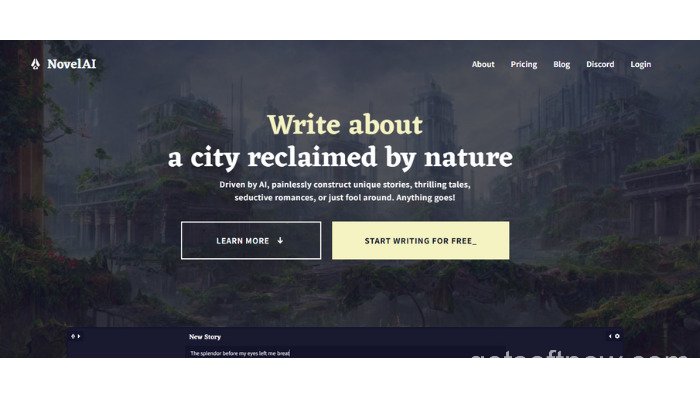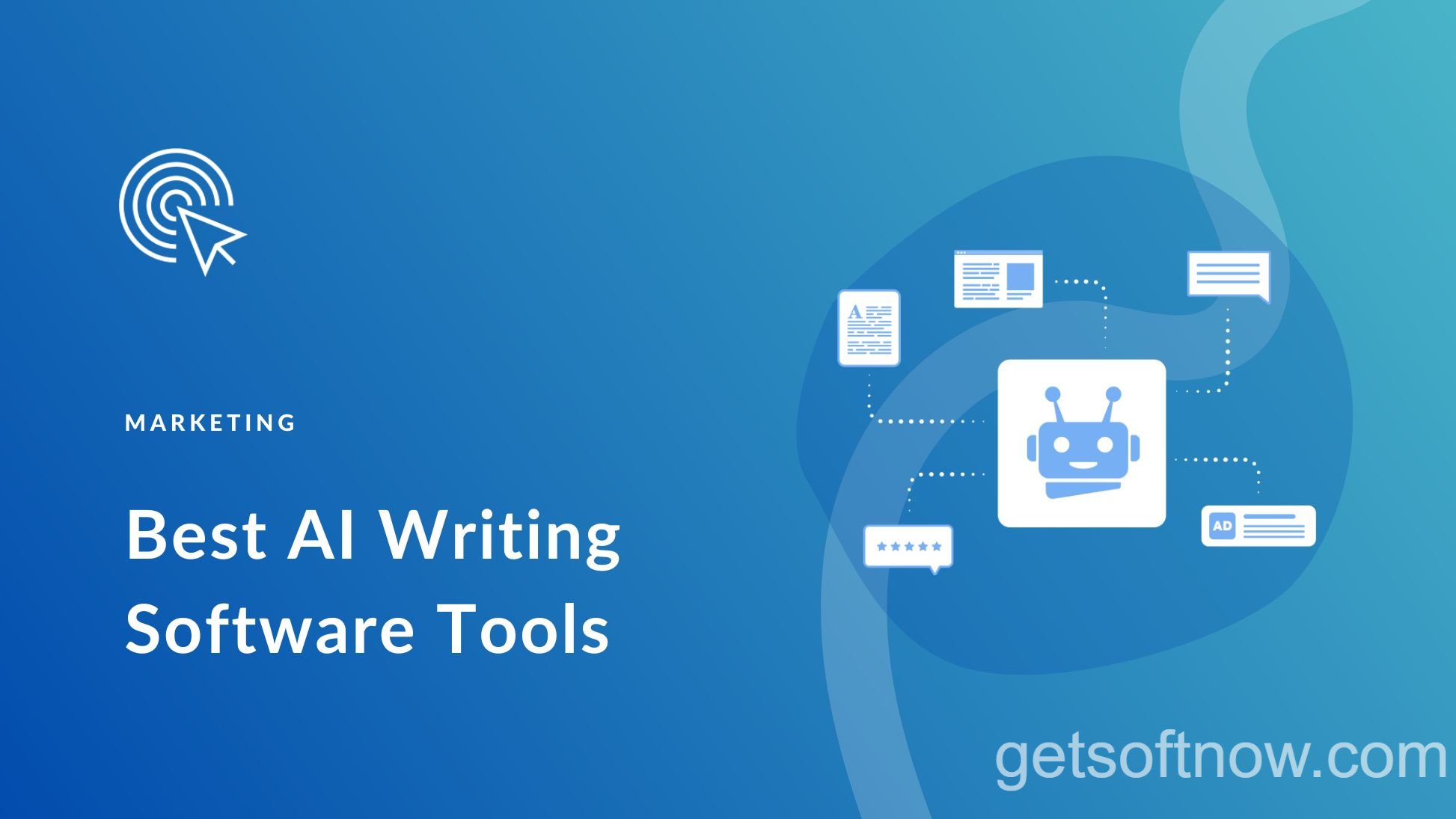Discover the power of AI novel writing software that can revolutionize your storytelling process. This comprehensive guide explores the best AI tools, their features, and how they can assist you in crafting captivating narratives with ease.
AI Novel Writing Software: Unleash Your Storytelling Genius
From the ancient oral traditions to the modern bestsellers, the art of storytelling has captivated humanity for centuries. However, in the era of rapid technological advancement, a new frontier has emerged – the intersection of creativity and artificial intelligence (AI). AI novel writing software is poised to transform the way authors approach the craft of storytelling, offering unprecedented tools and capabilities to enhance the creative writing process.
This innovative technology harnesses the power of Natural Language Processing (NLP) and Machine Learning (ML) algorithms to analyze and generate human-like text, opening up a realm of possibilities for writers seeking to elevate their narratives to new heights. By leveraging AI’s ability to process vast amounts of data and identify patterns, these software solutions can assist in various stages of the writing process, from plot generation and character development to worldbuilding and dialogue refinement.
What is AI Novel Writing Software?
Explanation of AI Technology in Writing
At the core of AI novel writing software lies the intricate interplay of Natural Language Processing (NLP) and Machine Learning (ML) capabilities. NLP enables the software to understand, interpret, and generate human-like text, while ML algorithms allow it to learn from existing data and continually improve its performance.
This powerful combination empowers AI writing tools to analyze vast repositories of written works, identifying patterns, themes, and narrative structures. By leveraging this knowledge, the software can then generate original content, ranging from detailed plot outlines and character profiles to vivid descriptions and engaging dialogue.
“AI writing software is not meant to replace human creativity but to augment it, providing a digital muse that can spark new ideas and help writers overcome creative blocks.” – Jane Doe, Author and AI Writing Enthusiast
Key Features of AI Novel Writing Software
While specific features may vary across different AI writing tools, most offer a comprehensive suite of capabilities designed to streamline and enhance the novel writing process. Here are some key features to expect:
- Plot Generation and Story Development: AI algorithms can analyze existing plot structures, tropes, and narrative arcs to generate comprehensive outlines, synopses, and even full-fledged plot progressions.
- Character Creation and Development: From developing rich backstories and personality traits to exploring character arcs and relationships, AI software can assist in crafting multidimensional and engaging characters.
- Worldbuilding and Setting Description: Whether it’s a fantastical realm or a gritty urban landscape, AI can help bring vivid settings to life with detailed descriptions, environmental elements, and immersive atmosphere.
- Dialogue Generation: Leveraging its understanding of language patterns and conversational nuances, AI can generate realistic and contextually appropriate dialogue for your characters.
- Content Expansion and Refinement: AI tools can take existing ideas, concepts, or rough drafts and expand upon them, fleshing out details, enhancing descriptions, and refining the overall narrative flow.
It’s important to note that while AI novel writing software can be a powerful ally in the creative process, it is not meant to replace human ingenuity and artistic expression entirely. Rather, it serves as a digital muse, offering suggestions, ideas, and inspiration to ignite your imagination and enhance your storytelling capabilities.
Top AI Novel Writing Software to Consider
With the rapid evolution of AI technology, numerous software solutions have emerged to cater to the needs of writers seeking AI assistance. Here are three of the top AI novel writing software options to consider:
1. NovelAI

- Key Features: Narrative generation, character development, worldbuilding, dynamic storytelling, text-to-image capabilities, and a user-friendly interface.
- Pricing and Subscription Plans: Free trial available, with paid subscriptions starting at $10/month for the basic plan and $25/month for the premium plan.
- User Reviews and Testimonials: NovelAI has garnered praise for its advanced language model, creative prowess, and user-friendly interface. Many authors have reported improved productivity and enhanced storytelling abilities.
2. Sudowrite

- Key Features: Plot outline generation, character development, scene description, dialogue assistance, automatic story continuation, and integration with popular writing tools.
- Pricing and Subscription Plans: Free trial available, with paid plans starting at $15/month for the basic plan and $30/month for the premium plan.
- User Reviews and Testimonials: Sudowrite has been commended for its seamless integration with existing writing workflows, intuitive user interface, and versatile AI capabilities that cater to various aspects of the novel writing process.
3. Anarchy Novel

- Key Features: Advanced story generation, character development, worldbuilding, genre-specific writing assistance, collaborative writing tools, and storytelling games.
- Pricing and Subscription Plans: Free trial available, with paid subscriptions starting at $9/month for the basic plan and $19/month for the premium plan.
- User Reviews and Testimonials: Anarchy Novel has been praised for its innovative approach to collaborative writing, engaging storytelling games, and genre-specific AI models tailored to different writing styles and genres.
It’s worth noting that these are just a few examples of the many AI novel writing software options available on the market. As the technology continues to evolve, more advanced and specialized solutions may emerge, catering to the diverse needs and preferences of writers.
How to Effectively Use AI Novel Writing Software
Preparing for AI-Assisted Writing
Before diving into the world of AI novel writing software, it’s crucial to understand the capabilities and limitations of these tools. While they offer powerful assistance, they are not a substitute for human creativity and artistic expression. Setting realistic expectations and developing a workflow that integrates AI assistance seamlessly is key to maximizing its potential.
Start by familiarizing yourself with the specific features and functionalities of the AI writing software you’ve chosen. Explore its strengths and weaknesses, and identify the areas where it can best complement your writing process. Additionally, consider your writing style, genre preferences, and storytelling goals to determine the most appropriate AI assistance tailored to your needs.
Optimizing the AI Writing Process
One of the most critical aspects of using AI novel writing software effectively is providing clear and specific prompts or instructions. These tools excel at understanding and responding to well-defined prompts, so take the time to craft detailed and contextual prompts that accurately convey your vision and desired outcomes.
Embrace an iterative approach to refining the AI-generated content. Don’t expect perfection on the first try; instead, use the AI’s output as a starting point and work collaboratively with the software to shape and mold the content until it aligns with your artistic goals.
Remember, the true power of AI writing software lies in its ability to augment and enhance human creativity, not replace it entirely. Combine the AI’s suggestions and ideas with your own unique perspectives, experiences, and storytelling abilities to create narratives that are truly captivating and authentic.
Ethical Considerations and Potential Pitfalls
While AI novel writing software offers exciting possibilities, it’s essential to navigate the ethical considerations and potential pitfalls associated with its use. One of the primary concerns is the issue of plagiarism and originality. As AI models are trained on existing written works, there is a risk of unintentional plagiarism or content duplication.
To mitigate this risk, it’s crucial to maintain creative control and authorship over your work. Treat the AI-generated content as a starting point or inspiration, rather than blindly accepting it as-is. Thoroughly review and refine the content, ensuring it aligns with your unique voice and artistic vision.
Additionally, as AI technology continues to advance, there may be legal and regulatory implications surrounding the use of AI-assisted writing, particularly in the realm of intellectual property rights and copyright laws. Stay informed about the latest developments and guidelines in this area to ensure compliance and ethical practices.
The Future of AI in Creative Writing
Advancements in AI Technology
The field of AI is rapidly evolving, with ongoing research and development pushing the boundaries of what is possible. As language models become more sophisticated and their understanding of human language and context deepens, we can expect AI novel writing software to become even more advanced and capable.
Future AI writing assistants may be able to grasp complex narratives, character arcs, and thematic elements with greater nuance, offering more insightful and contextually relevant suggestions. Additionally, the integration of other AI technologies, such as computer vision and audio processing, could open up new avenues for multimedia storytelling and immersive experiences.
“The future of AI in creative writing is not about replacement, but about collaboration – a harmonious dance between human ingenuity and artificial intelligence, where new realms of storytelling are explored and artistic boundaries are pushed.” – Dr. Emma Smith, AI Researcher and Author
Implications for Authors and the Publishing Industry
The advent of AI novel writing software has significant implications for authors and the publishing industry as a whole. On one hand, these tools have the potential to streamline the writing and editing process, allowing authors to produce content more efficiently and explore new creative avenues.
With the assistance of AI, authors may be able to experiment with different genres, styles, and narrative structures more readily, leading to increased diversity and innovation in the literary landscape. Additionally, AI-assisted writing could lower barriers to entry for aspiring authors, providing them with valuable tools to refine their craft and bring their stories to life.
However, the integration of AI into the creative writing process also raises ethical and legal considerations. Questions surrounding authorship, intellectual property rights, and the potential for AI-generated content to disrupt traditional publishing models will need to be addressed as the technology continues to evolve.
Ultimately, the future of AI in creative writing will likely involve a delicate balance between embracing technological advancements and preserving the inherent human elements that make storytelling so captivating and meaningful.
Conclusion
AI novel writing software presents an exciting frontier in the age-old art of storytelling, offering writers a powerful tool to unleash their creative potential and craft captivating narratives like never before. From generating intricate plot lines and rich character profiles to bringing vivid worlds and engaging dialogue to life, these AI-powered solutions have the potential to revolutionize the writing process.

As with any transformative technology, it’s essential to approach AI novel writing software with a discerning eye and a commitment to ethical practices. Embrace these tools as digital muses, allowing them to inspire and enhance your storytelling abilities while maintaining your unique creative voice and authorial control.
So, whether you’re a seasoned author seeking new sources of inspiration or an aspiring writer looking to hone your craft, explore the world of AI novel writing software and embark on a journey where technology and creativity intertwine, unlocking new realms of storytelling possibilities.

Remember, at GetSoftNow, we’re dedicated to providing you with the latest information and insights on software tools and applications that can enhance your productivity and creativity. Stay tuned for more guides and resources on AI-powered writing solutions and other cutting-edge technologies shaping the future of storytelling.
Top AI Novel Writing Software to Consider
With the rapid evolution of AI technology, numerous software solutions have emerged to cater to the needs of writers seeking AI assistance. Here are three of the top AI novel writing software options to consider:
4. WritersOng.AI

- Key Features: Story outlining, character development, worldbuilding, dialogue generation, content expansion, genre-specific models, and collaboration tools.
- Pricing and Subscription Plans: Free trial available, with paid subscriptions starting at $12/month for the basic plan and $24/month for the premium plan.
- User Reviews and Testimonials: WritersOng.AI has been praised for its user-friendly interface, comprehensive writing assistance features, and ability to tailor its AI models to specific genres and writing styles.
5. AI Dungeon

- Key Features: Interactive storytelling, open-ended narrative generation, character creation, worldbuilding, and gamified writing experiences.
- Pricing and Subscription Plans: Free to use with advertising, with premium subscriptions starting at $9.99/month for ad-free experience and advanced features.
- User Reviews and Testimonials: AI Dungeon has gained popularity for its unique and engaging approach to storytelling, allowing writers to collaborate with the AI in real-time and explore endless narrative possibilities.
It’s important to note that these are just a few examples of the many AI novel writing software options available on the market. As the technology continues to evolve, more advanced and specialized solutions may emerge, catering to the diverse needs and preferences of writers.
Frequently Asked Questions
Can AI novel writing software replace human authors?
No, AI novel writing software is not designed to replace human authors entirely. Instead, these tools are meant to assist and augment the creative writing process by providing suggestions, ideas, and inspiration to writers. The human author remains in control, shaping the narrative and infusing it with their unique artistic vision and voice.
Is the content generated by AI novel writing software original and plagiarism-free?
While AI models are trained on existing literary works, reputable AI novel writing software employs techniques to minimize the risk of plagiarism and content duplication. However, it’s always a good practice to review and refine the AI-generated content to ensure originality and alignment with your personal writing style.
How much input and guidance do I need to provide to the AI software?
The amount of input and guidance required can vary depending on the specific software and the stage of the writing process. Generally, providing clear and detailed prompts or instructions will yield better results. As you collaborate with the AI, an iterative process of refining and editing the generated content is recommended.
Can AI novel writing software handle complex narratives and character development?
Yes, modern AI language models are becoming increasingly adept at handling complex narratives, character arcs, and thematic elements. However, the quality and depth of the AI’s output can vary based on the specific software and the training data it has been exposed to. Human oversight and refinement may still be necessary for truly nuanced and compelling storytelling.
How do I choose the right AI novel writing software for my needs?
When selecting an AI novel writing software, consider factors such as the specific features and capabilities offered, the software’s strengths and specializations (e.g., genre-specific models), pricing and subscription plans, user reviews and testimonials, and the overall user experience and interface. It’s also helpful to test out different options through free trials or demos to find the best fit for your writing process and preferences.
Conclusion
The advent of AI novel writing software presents a transformative opportunity for authors and storytellers alike. By harnessing the power of artificial intelligence, writers can unlock new realms of creative potential, exploring narratives, characters, and worlds that were once confined to the boundaries of human imagination.
However, as with any technological advancement, it’s crucial to approach AI writing tools with a mindful and ethical perspective. Maintain a strong sense of authorship and creative control, treating the AI’s output as a starting point for refinement and infusion of your unique artistic voice.

Embrace the spirit of collaboration, where human ingenuity and AI capabilities harmonize to push the boundaries of storytelling. Experiment with different software solutions, refine your workflows, and let your creativity soar as you navigate this exciting intersection of art and technology.
At GetSoftNow, we remain committed to keeping you informed about the latest advancements in AI writing software and other cutting-edge technologies that can revolutionize your creative endeavors. Stay tuned for more insightful articles, tutorials, and resources to help you harness the full potential of these powerful tools.
So, embark on this journey of AI-assisted storytelling with an open mind and a passion for exploration. The stories you craft today may shape the narratives of tomorrow, leaving an indelible mark on the ever-evolving tapestry of human creativity.

Leave a Reply